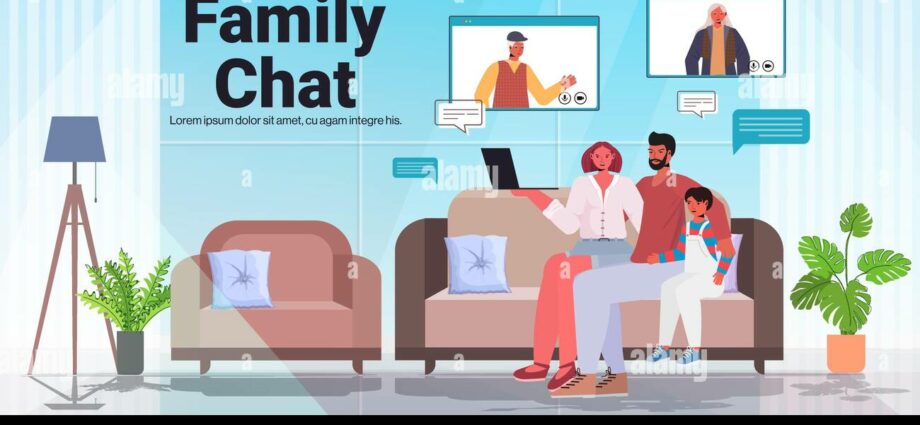Contents
How to become parents when a father and a mother have never lived together or when the separation turns out to be so conflicting that it prevents any dialogue? Parent-child meeting spaces help maintain the link.
The impact of separations on the father-child bond
Would households become less and less solid? According to INSEE, nearly one in three couples separate, or even one in two in large cities. Consequence for the child: it must be divided between the residence of his mother and his father. Problem: after a year, one in four toddlers loses all contact with the parent from whom they are separated (usually the father). However, the child needs both parents to grow up. “From the moment we decide to have a child, that we decide to keep it, we cannot exclude the father », Recalls a family mediator. The International Convention on the Rights of the Child also establishes access to both parents as a fundamental right. Despite the separation, the parents both retain the exercise of parental authority. Irène Théry, sociologist specializing in law and the family, goes further: “Beyond separation, there is a correlative obligation for each of the two parents to maintain their responsibility towards the child and to respect and encourage that of the other parent. “(February 1999 note)
But what solutions when the parents no longer get along and the conflict is such that it is impossible to agree on visiting rights? This is when meeting spaces come into play.
The role of meeting spaces
Over the past 20 years, around 130 “meeting places” have emerged in France. It is only since a law of March 5, 2007, reforming the protection of children that they are legally recognized. Whether the child is deprived of one of his parents or the parental situation is too confrontational, he will be able to renew contact in this neutral and independent place, if there is no other solution. Conceived as a mediating place, the goal is to “maintain, even establish relations between the child and his father or mother”, explains an official of the pilot center association for parenthood, Paris 18th district.
In addition, in accordance with its primary function, this space also serves as a relay to “pass” the child between the father and the mother, like a secure airlock, when the situation is too conflictual. “Before knowing about our existence, during the exchange of the child, many parents met in front of a police station to supervise their excesses! ”
In the meeting space of Paris 18th, a third of toddlers (infants or toddlers) got to know their dad in 2007. Either the couple had known little of life together, or the father had been fired during the pregnancy. The remaining two-thirds had lost all contact, most often with their father, after the couple separated.
The terms of the meeting
Rattles, toy cars, fire engine, doll … It is in a reassuring setting, dotted with games, that the child meets his mum or dad. The team of interveners, more or less multidisciplinary depending on the center (mediators, psychologists, educators, etc.) discreetly integrate into the parent-child reunion and work on bringing them together. “Our mission is to ensure that everyone finds their place, at their own pace,” explains a manager of the Paris 18th meeting space. No way the mother drops off her child and leaves immediately! “The mother must point out the father to her child, explain the situation to him. Even if he does not speak, an infant feels a lot. He needs to understand why he finds himself in the arms of a stranger. ”
The purpose of the parent-child meeting space ? “To ensure that trust and dialogue are restored so that parents become able to organize the family constellation on their own, in a lasting way. All this within the framework of the protection of the child ”.
Who directs families to these spaces?
More than 90% of families oriented towards meeting spaces are based on the decision of the family affairs judge (JAF). The rest of the requests come from a voluntary choice. “More and more, in the maternity ward, mothers who exclude the father are informed of the need for the latter’s presence”, notes a mediator.
For many families who come spontaneously, meetings end up being lost. On the contrary, the parents forced by the JAF to restrict themselves to a meeting place go all the way. ” At first it’s hard, they feel like they’re in control, almost in prison, says this mediator. Over time, they understand that it is a chance. But the outcome does not depend on the stakeholders. We are only there to accompany and support. It takes a real desire to achieve on the part of the parents. Otherwise, it is harmful for everyone. ”
When the time for meetings is over, the door remains open for the future, especially in the event of a “seizing up” of relations.
The frequency and cost of meetings
When the meeting space is not a simple place of “passage” for the child, the meetings take place at the rate of two hours every two weeks. But each family progresses at its own pace. The appointments can therefore be spread over very random periods (from three months to much more). The workers assess the situation and negotiate with the parents to put an end to it when they deem it appropriate or, on the contrary, recommend a renewal. On the price side, the session is evaluated, on average, at 40 euros per person. But most meeting spaces allow a financial participation left to the discretion of the parties, according to their income. Nevertheless, the absence of a contribution does not prevent the admission of a family.










